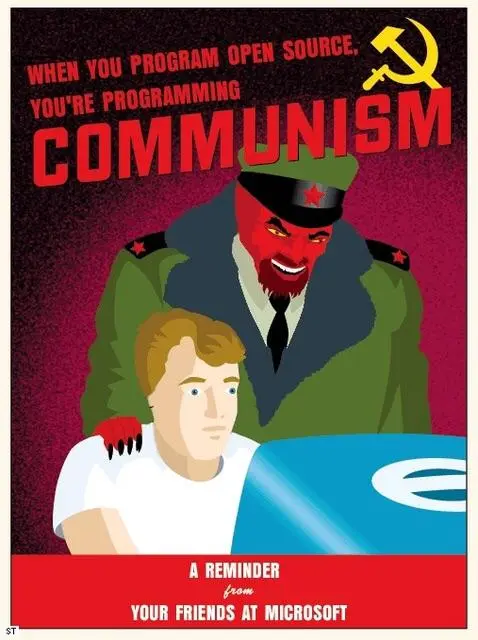Why is every AI bro a complete sociopath?
As someone who has made music and tried to turn it into a job, the part that basically everyone hates is the marketing of said music. Making it is wonderful, just as making any art typically is. It’s the turning that labour of love into cold hard cash which capitalism forces us to do that’s awful.
Why is every AI bro a complete sociopath?
Simple: to strike it rich, you have to be competitive, willing to step over other people and put your own interests above theirs. I.e. in order to win, someone else has to lose. Very few people become rich without hurting other people in the process.
Therefore, rich people are generally people who don’t mind cheating, lying and hurting others. You need blunted empathy to live with yourself when you live like that.
in other words: successful people - at least successful in the capitalist eutrepreneurial sense - all have a degree of psychopathy. And less successful psychopaths with less talent become abusive middle-managers.
This holds true for other highly competitive, winner-loser activities too, such as politics.
That’s why you and I, who care about others and value leading their lives without hurting others, have boring honest 9-to-5s, generally don’t amount to much and get fucked over by the successful psychopaths. But at least we can look at ourselves in the mirror.
But at least we can look at ourselves in the mirror.
They can too. A “benefit” of not having empathy and emotionally understanding that their gain is the loss and labour of many others.
Leech says people don’t like blood
The author makes a great point here to springboard off of:
Music is a form of creative expression that’s old as humanity itself and exists in every culture. Babies will “make music” by clapping their hands and smashing blocks together long before they can talk, and they don’t find that frustrating.
I don’t think most people do find it frustrating to “make music”. What people struggle with—and this connects to some broader discussions about generative AI I’ve had in another place—is becoming an expert in a skill and living up to conventional standards of producing “great works”. You can tap out a rhythm on a countertop and sure, it’s not going be hailed as a Hans Zimmer soundtrack, but you can still derive enjoyment from it.
Or to use a field that wouldn’t so much be considered artistic as an example, you can create a Hello World computer program with relative ease, even with knowing little about computers. But creating a complex program is going to be hard. The basics tend to be pretty easy and mastery, well… I would not say it’s “supposed to be hard” in some meaningless sense of “doing hard work for the sake of it”, but it’s supposed to be in the sense that mastery is defined by (something like) having worked so thoroughly at something for so long, that it’s like second nature. The end result of mastery in composing isn’t “Hans Zimmer” (who is a particular musician who got very famous - a rare thing), it’s something more akin to “I can pick up an instrument and start composing or improvising a pleasing tune that adheres well to musical theory, with ease”. It says nothing about what kind of music you create - but AI does, because it is heavily biased by the dataset it’s trained on. A masterful Turkish music composer will create great Turkish music. If an AI does not understand Turkish music—if for example, it has been exposed only to synthetic takes on what Turkish music is through guesses by people who know nothing about the culture—it will just create stuff called Turkish that is nothing like it.
In other words, there is the capitalist product-focused way of thinking about “creation” which tends to view any inefficiency as abhorrent, creation of a thing as an inherent good because it can be sold as a product, and tries to justify any reduction of labor as “it’ll totally benefit you fingers crossed behind my back”. And then there is the realities of how people actually engage with the world now and historically.
And somewhere along the line in the capitalist jumble, for some of us, there’s something that can get tangled up inside about how we think about entertainment. A baby can entertain themself just clapping their hands. Do we need advanced toys to feel entertained, to express ourselves, or is there something else going on, such as with ego? (Like the case of people who generate with AI doing 99% of the work and then call themselves an artist.) I don’t see it as an open and shut case, simplistic thing. But I think it’s something to think about.
Another thing to think about is how we experience appreciation. Part of my enjoyment of a cover song like this one: https://www.youtube.com/watch?v=InmcAzhz1fc
Is admiring how much skill and practice must have gone into him being able to do it. And then getting the original creator to collaborate with him on it too. None of that has to do with how it sounds, intrinsically, but it does increase my enjoyment of it.
I don’t think most people do find it frustrating to “make music”. What people struggle with—and this connects to some broader discussions about generative AI I’ve had in another place—is becoming an expert in a skill and living up to conventional standards of producing “great works”.
I don’t think it is this. Obviously I cannot say for sure where this sociopath is coming (him being a sociopath and all) from but since he is in the business of peddling AI music I am somewhat confident what I am about to say is pertinent.
Recently there has been a lot of scrutiny of Spotify for promoting ghost artists. Ghost artists are fake artists that some companies create to credit contract-produced music to. These are the kind of tracks that they qualify as background music–lofi and similar stuff. These companies hire freelance musicians to make this music for them. They pay the musicians upfront and keep the royalty that they receive from Spotify. Spotify also has to pay them less royalty than actually existing artists so Spotify wins from this too.
The journalistic coverage of this topic heavily featured anecdotes from the musicians where they said that they did not enjoy making this kind of music since there is little room for creativity. It is just elevator music.
I feel this is what this sociopath is talking about when he says people don’t enjoy making music. He is probably eyeing streaming fees, royalties etc. whatever these ghouls are trying to make money off these days.
Fair points. I think my mind was going more in a direction of how a regular person might engage with AI. But this seems like a solid analysis of what they’re gunning for and talking about on a business level.
I found a YouTube link in your comment. Here are links to the same video on alternative frontends that protect your privacy:






